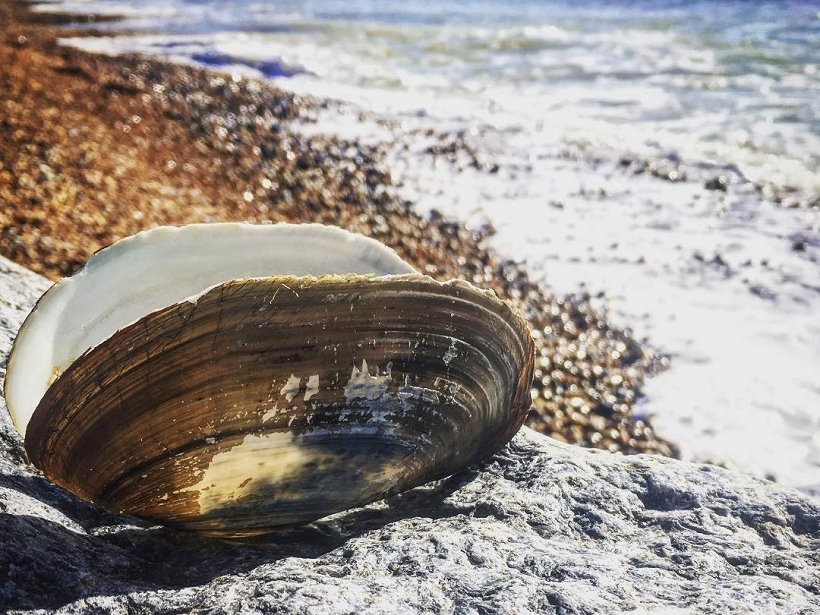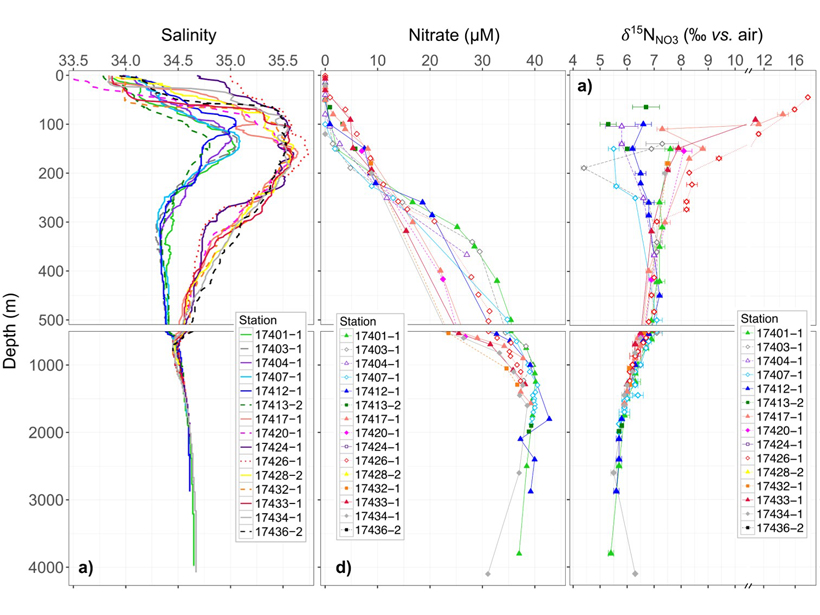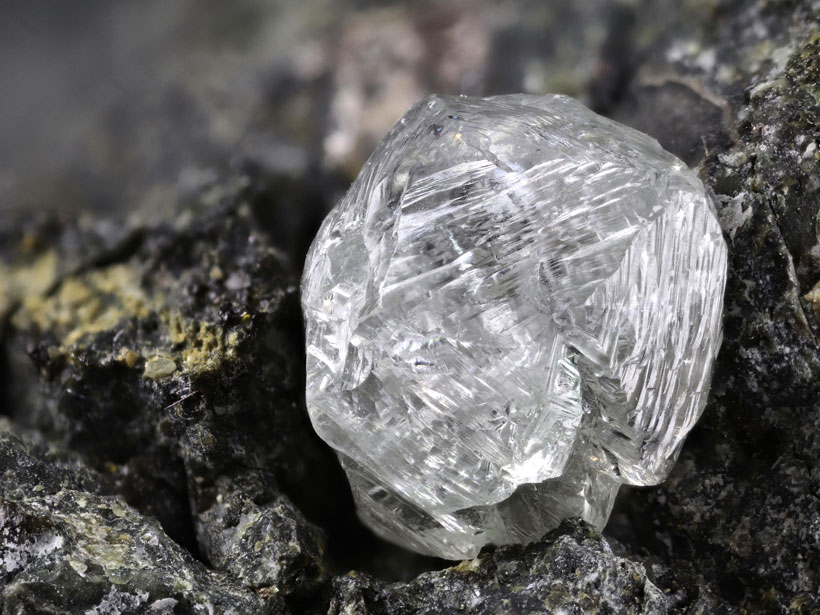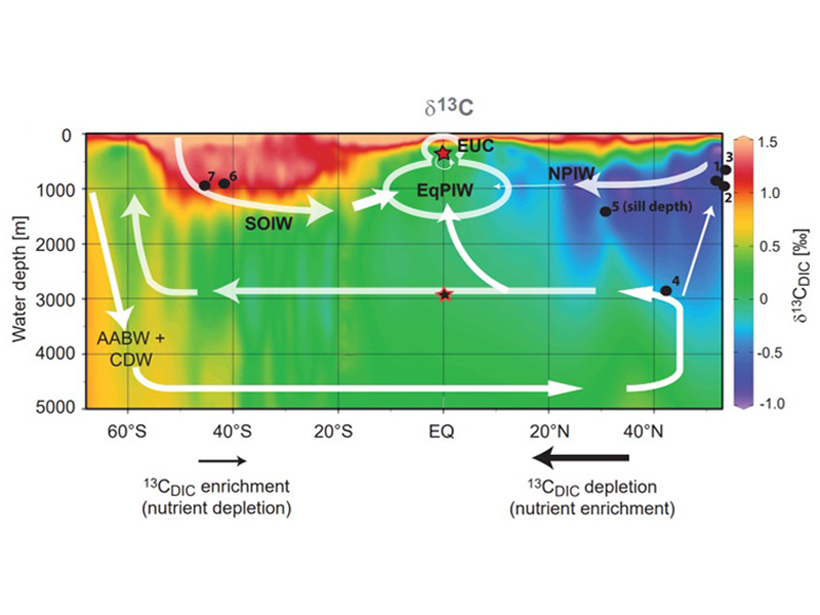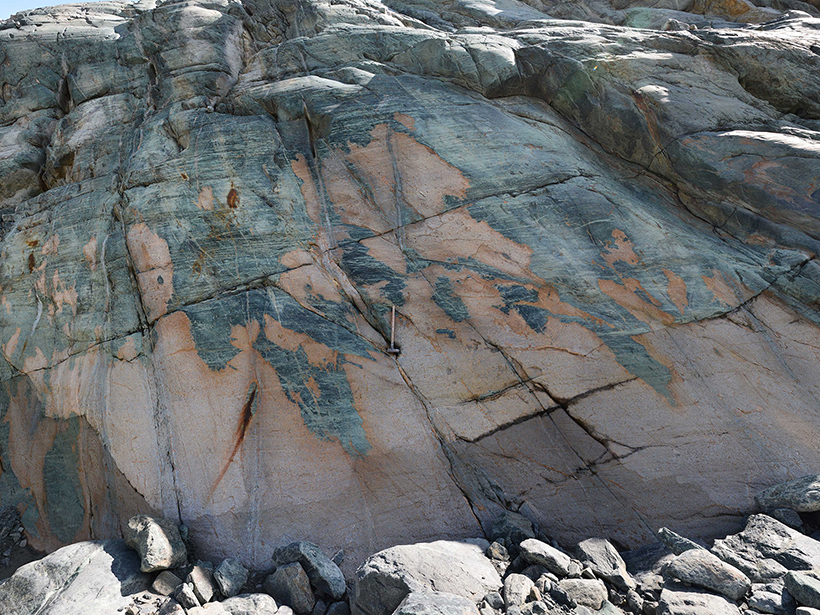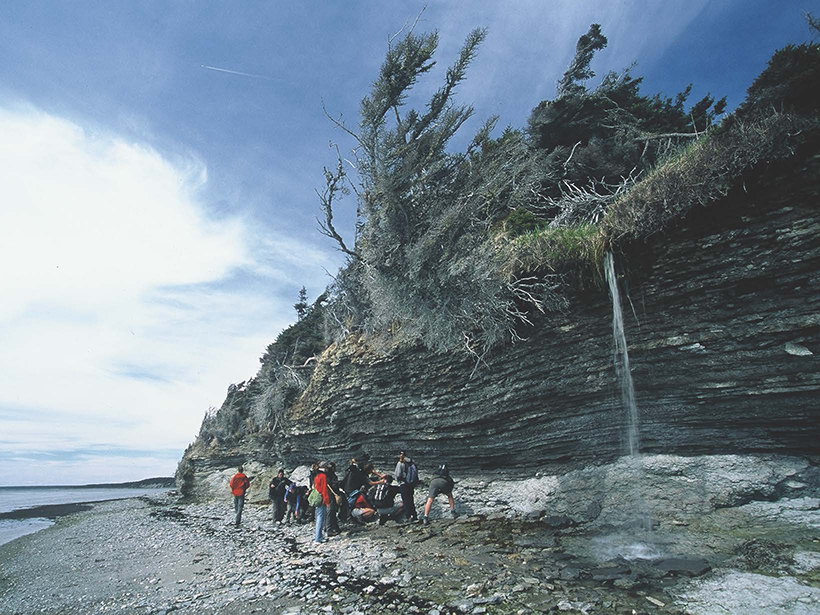Defining the chemical relationships between water, sediment, and organisms that thrive beneath riverbeds.
geochemistry
Radiocarbon in the Oceans
Offsets in radiocarbon concentration within the ocean or between the ocean and the atmosphere are particularly useful proxies for a variety of studies.
Unraveling Hemispheric Ocean Nitrate Supply Pathways
Subsurface measurements of nitrogen and oxygen isotope ratios in nitrate reveal a predominantly southern hemisphere supply of nitrate to the equatorial Pacific.
How Ice Rafting Events Affect Asian Monsoon Hydroclimate
Cave stalagmites provide isotopic evidence that Bond events and Heinrich events have more variable effects on Asian monsoon hydroclimate during the last glacial period than during the Holocene.
Diamond Impurities Reveal Water Deep Within the Mantle
A high-pressure form of ice, trapped within diamonds forged in the lower mantle, suggests that aqueous fluids reside deeper in Earth than we knew.
History of Water on Mars’s Surface Is Longer Than We Thought
Curiosity’s two-step heating experiment of mudstone at Gale crater reveals minerals that formed in the presence of water less than 3 billion years ago.
“North Pacific Nutrient Leakage” During Glacials
Carbon isotope data suggest an alternative source of nutrients to the Eastern Equatorial Pacific during glacial periods.
Manning and Marty Receive 2017 Norman L. Bowen Award
Craig Manning and Bernard Marty will receive the 2017 Norman L. Bowen Award at the 2017 American Geophysical Union Fall Meeting, to be held 11–15 December in New Orleans, La. The award recognizes “outstanding contributions to volcanology, geochemistry, or petrology.”
Scientists Simulate New Mechanism of Fluid Flow in Earth’s Crust
Three-dimensional high-performance computer modeling reveals the behavior of fluid transport waves generated by chemical reactions that take place during metamorphism.
Clues Found That Earth May Have a Thermostat Set to “Habitable”
Weathering of rocks can control Earth’s temperature over geologic timescales, new geochemical data suggest.


